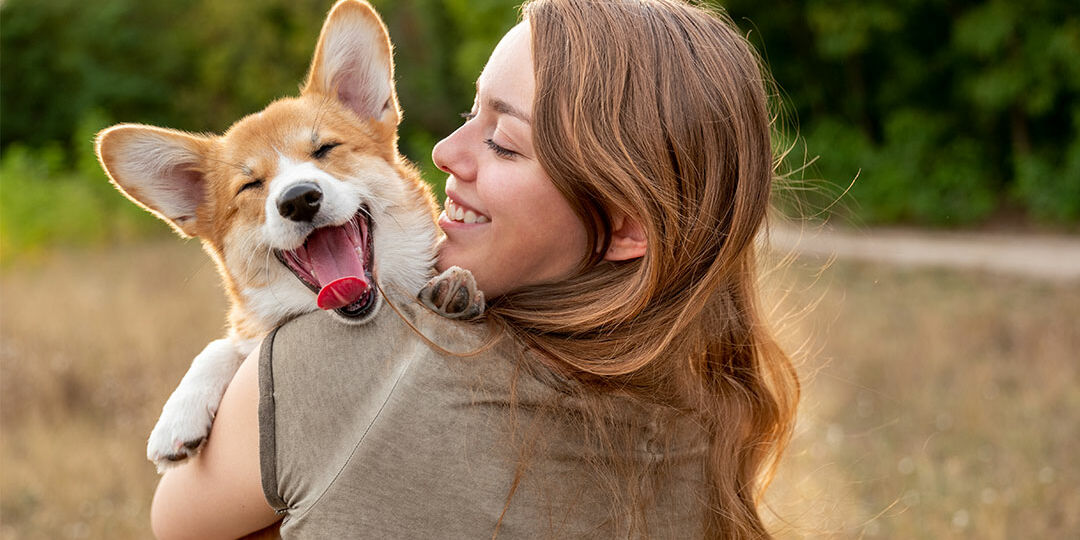
Pet Parenting Mistakes to Avoid
When it comes to owning a pet there is no perfect manual to tell you what to do for every situation. Although a lot of pet ownership is trial and error, there are certainly things that you should avoid doing to give your furry friend the best possible life. The choices you make as an owner can significantly impact their health, happiness, and over-all wellbeing. So, we’ve put together 6 common pet parenting mistakes you should work to actively avoid.
1. Avoiding the Vet
Look, we know that for many animals the vet can be a stressful and unpleasant experience. But we cannot stress the importance of going. Keeping up to date with vaccinations and basic checkups are soooo crucial for the health of your pet. Remember, preventative care is generally always less expensive than reactive care. So, get to know some vet clinics in the area and try one that makes you and your pet feel the most comfortable. Having a good relationship with your veterinarian can lessen the stress on both pet and parent.
2. Lack of Exercise
Whether you own a dog, cat, guinea pig, or alpaca, all animals need some kind of exercise. Exercise helps keep your pet healthy and fit and can also work to elevate problems like boredom and destructive behaviours. Keep in mind though that exercise can come in many different forms based on the animal you have! Dogs for instance may need multiple walks/runs a day depending on size and energy level. While cats may just need to be played with for short periods each day. Every pet it unique and it’s important to treat them as such. So, find an activity you and your best friend can do together and enjoy some bonding time!
3. Overfeeding & Lack of Proper Nutrition
Next to exercise, food and proper nutrition is key to having a healthy and happy pet. Sadly, one of the most common mistakes pet parents make is overfeeding their furry friend. Trust us, we know, sometimes those eyes make it irresistible to give them a piece (or five) of your dinner. But it’s super important that you properly understand what kind of diet your pet needs and what kind of ingredients are required for optimal health. Check the labels on the food products you give your pets and ensure they’re made with high-quality ingredients and free of any fillers or artificial additives. If overfeeding is your problem, try measuring out the food and sticking to a schedule. Ultimately if you’re still trying to navigate what to feed your pet, it’s always smart to consult with your vet – another reason not to avoid them!
Curious to see if you pet is overweight and may need to shed a few pounds? Try using the World Small Animal Veterinary Association’s Body Conditioning Score.
Body Conditioning Score for Cats
Body Conditioning Score for Dogs
4. Skipping Out On Training
Without a doubt, training is an integral part of pet ownership. Not only does it help teach your pet good manners, but it also creates a stronger bond between you & your furry friend. The golden rule with training is consistency! While there are certainly different approaches to take to training your pet, the common factor across them all is the importance of consistency, and we can’t stress that enough.
A recommended and widely used approach is positive reinforcement. This is a pretty standard practice amongst most trainers today and is by far the most humane training method. It’s actually backed by research that shows that pets trained in this way live a more enjoyable lives and have better bonds with their owners.
The approach you take isn’t the only thing to consider when deciding on how to train your pet, it’s also about the equipment you’ll need. So, when it comes to aspects of training, try and consider these three things:
- What type of method you want to use and ultimately which one is going to be most beneficial for your pet?
- What basic commands do you need to conquer?
- What is the necessary equipment needed? (leash vs. harness etc.)
5. Not Socializing
Socialization is certainly critical for all pets, but definitely more important for dogs. Without it, they can become anxious, stressed, and can lead to behavioural problems. The best way you can avoid this is by introducing them to various people and places right from a young age. Doggy daycare or socialization classes are great ways to get your pup used to other dogs. Cats, however, may simply just need to get used to other people or pets being around them. It’s important that you continue to socialize all pets throughout their life to ensure they remain well adjusted.
6. Not Budgeting for Pet Insurance
Now, we know, pet insurance can be pricey. But you know what’s even worse? Getting slammed with a $2000 vet bill and having to pay out of pocket. Similar to regular vet checkups, pet insurance can protect you against unplanned financial setbacks. While the idea of pet insurance premiums can be daunting, it’s important to think about what would happen if you were in fact hit with that vet bill unexpectedly. We’ve had great luck with Trupanion, which provides affordable pet coverage with lots of price options.
Looking for some ideas on how to keep your furry friend safe during flea and tick season? Check out these tips and tricks on what to use to keep them safe during the warmer months.
